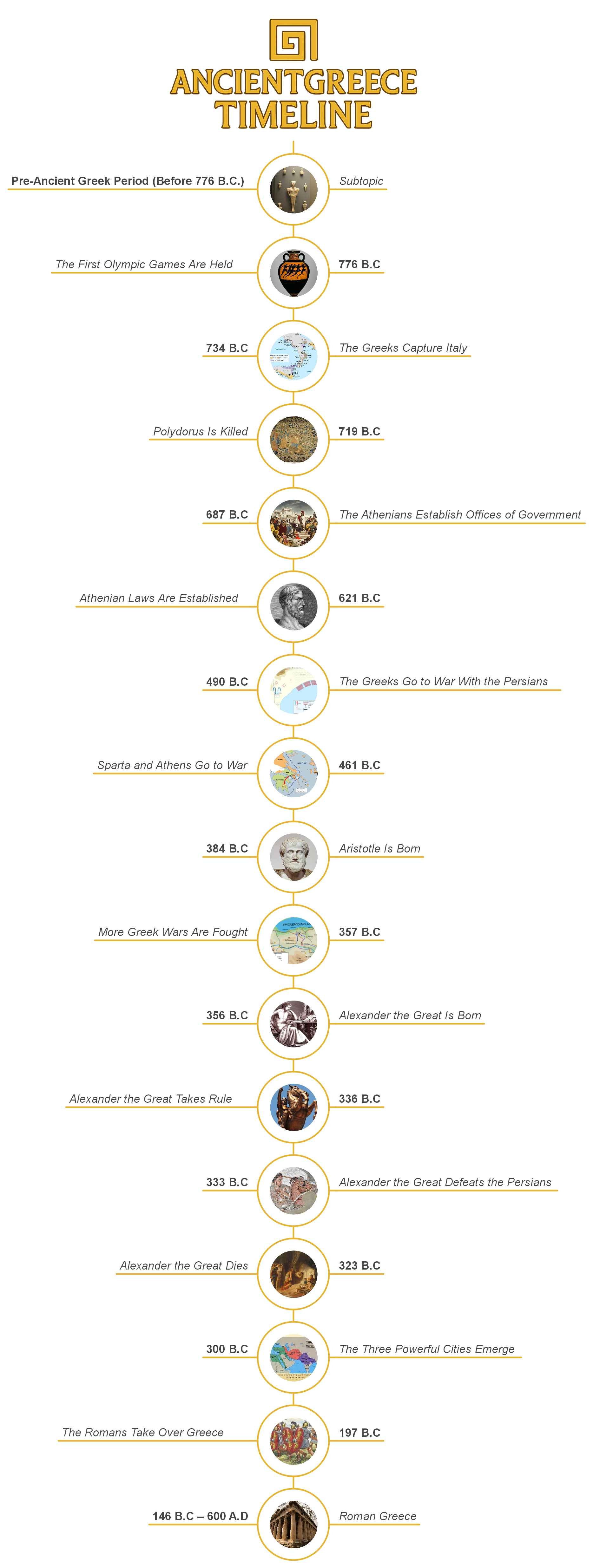Ancient Greece was the beginning of many modern ideas. People built cities, farms, and markets. They created art, theater, and sports. Each city-state ruled itself.
Some cities had kings. Others let people vote. Greece introduced us to democracy and philosophy. Its thinkers asked big questions. What started as small villages became a powerful world of culture and ideas that still shape our lives today.
To see how Greece became so powerful, we'll follow its timeline. Every era tells a fascinating story.
In this article
Part 1: Timeline of Ancient Greece
Greek history is divided into the Archaic (800-490 B.C.), Classical (490-323 B.C.), and Hellenistic (323-146 B.C.) periods. The Archaic Period saw the rise of city-states and early culture. The Classical Period brought democratic reforms in Athens, major wars, and the rise of Alexander the Great. After his death, the Hellenistic Period began. Greek power weakened, and in 146 B.C., Rome conquered Greece.
Now that you know the main periods of Ancient Greek history, let's look at the important events that made each one special.
To see how Greece became so powerful, we’ll follow its timeline. Every era tells a fascinating story.
Pre-Ancient Greek Period (Before 776 B.C.)
Before ancient Greece, there were other great civilizations. The Minoans lived on Crete, building palaces and trading goods. Then came the Mycenaeans, known for their kings and large fortresses.
These early cultures wrote in early scripts and loved stories of gods and heroes. After their fall, Greece entered a "Dark Age." Writing was lost. Cities shrank. But slowly, villages grew again. This set the stage for ancient Greece to rise.
776 B.C: The first Olympic Games were held
In Olympia, the Greeks held their first Olympic Games. Athletes came from many city-states to compete. They honored Zeus, the king of the gods.
There were foot races, wrestling, and chariot races. Winners were given olive wreaths. The games brought people together in peace. Every four years, the games continued. These ancient Olympics later inspired the modern games we enjoy around the world today.
734 B.C: The Greeks capture Italy
King Polydorus of Sparta sent his army west to expand. They sailed across the sea and landed in Italy. There, they captured land and built Greek cities.
These new cities brought Greek culture to Italy: Temples, theaters, and marketplaces. This move spread Greek ideas far from home. Southern Italy became known as "Magna Graecia," or "Greater Greece," because it felt so much like home for the settlers.
719 B.C: Polydorus was killed
Polydorus, the king of Sparta, was murdered. His killer was Polymarchus. We don't know exactly why it happened, but it was likely due to political jealousy.
Back then, leaders weren't always safe. Power brought enemies. Betrayal was common in Greek politics. Polydorus's death marked a dark turn for Sparta. His fall reminds us how dangerous leadership could be in ancient times, even for a powerful king.
687 B.C: The Athenians established offices of government
Athens took a big step toward democracy. They created government offices and allowed citizens to choose leaders. Their main leader was called the Archon.
This change gave the people a voice. Before, only nobles had power. Now, everyday citizens had a role in shaping laws and rules. It wasn't a full democracy yet, but it was an important beginning for Athens and for government systems around the world today.
621 B.C: Athenian laws were established
A man named Draco wrote Athens' first laws. Before him, people followed unwritten rules. Draco's code listed clear punishments for each crime.
But his laws were very harsh. Even small crimes led to death. The people found them too cruel. Still, it was the start of written law in Athens. Later leaders made better laws. But Draco's code reminded people that rules must be fair to work.
490 B.C: The Greeks went to war with the Persians
The powerful Persian Empire tried to conquer Greece. But the Greek city-states stood firm. They fought bravely at the Battle of Marathon.
The Greeks won with smart planning and strong teamwork. A runner carried the victory news to Athens. That's how we got the word "marathon." This war showed the world that even small, united cities could beat a giant empire through courage and clever thinking.
461 B.C: Sparta and Athens went to war
Athens and Sparta, once allies, became bitter enemies. They started a long conflict called the Peloponnesian War. It lasted nearly 30 years.
Each city had different ideas about government and power. Athens liked democracy. Sparta was ruled by a few. They fought by land and sea. In the end, Sparta won. But both cities were weakened. This war opened the door for other powers to rise in Greece.
384 B.C: Aristotle was born
Aristotle was born in Stagira, Greece. He became one of the greatest thinkers in history. His ideas shaped science, ethics, and politics.
He studied under Plato and later taught Alexander the Great. Aristotle asked big questions about life and how things work. He wrote many books that people still study today. His work helped shape schools, governments, and how we think about the world around us.
357 B.C: More Greek wars were fought
After Athens and Sparta stopped fighting, a new threat rose: Macedonia. Athens began a war with this northern kingdom, ruled by King Philip II.
The Greek city-states were too divided to stop him. He used strong armies and smart plans. Slowly, he took control of Greece. These wars ended the independence of many Greek cities. Soon, Greece would be ruled by a single powerful king, not separate city-states.
356 B.C: Alexander the Great was born
Alexander was born in Macedonia to King Philip II. From a young age, he showed great intelligence and bravery. His teacher was Aristotle.
People didn't know he'd become one of history's greatest leaders. But Alexander had big dreams. He wanted to conquer the world. He would later lead armies farther than any Greek before him. His name would become known in every corner of the ancient world.
336 B.C: Alexander the Great took rule
When King Philip II was killed, his son, Alexander, took the throne. He was only 20 but ready to lead. His people trusted him.
He united Greece and prepared to conquer the Persian Empire. His journey would be long and full of battles. Alexander led his troops with courage and skill. Under his rule, Greece expanded far beyond its borders, changing history forever with every step.
333 B.C: Alexander the Great defeated the Persians
Alexander led his army into Persia and won. He took Mesopotamia and Egypt, lands once ruled by Persian kings. His victories were quick and bold.
He became a hero across the land. His empire stretched from Greece to India. He spread Greek culture far and wide. His name meant power. The fall of Persia marked the rise of a new age—one shaped by Greek thought and strength.
323 B.C: Alexander the Great died
Alexander died in Babylon at only 32 years old. Some say it was a fever. Others think it was poison. His sudden death shocked the world.
He had no clear heir. His empire quickly split among his generals. Greece lost its great leader. But his ideas and culture lived on. Alexander's dream of a united world faded, but his legacy shaped many future kingdoms, leaders, and cultures forever.
300 B.C: The three powerful cities emerged
After Alexander's death, his empire broke apart. Three main powers rose: Macedon in Greece, Egypt ruled by Ptolemy, and Syria under Seleucus.
Each ruler was once a general for Alexander. They built cities, armies, and strong governments. Though they often fought, they also helped spread Greek culture. These kingdoms kept Greek ideas alive. For many years, they remained powerful forces in the ancient world before Rome's rise.
197 B.C: The Romans took over Greece
Rome grew stronger while Greece grew weak. King Philip V of Macedon fought Rome but lost in battle. That marked the end of Greek rule.
Greece became part of the Roman world. However, the Romans loved Greek art, language, and ideas. They adopted much of it. So even though Greece lost its freedom, its culture lived on. Roman Greece still influenced the world in powerful, lasting ways.
146 B.C - 600 A.D: Roman Greece
Greece became part of the Roman Empire in 146 B.C. But Greek culture didn't disappear. In fact, it spread even more. Romans loved the Greek language, art, and learning.
Greek teachers taught Roman students. Greek gods were given Roman names. Greek theaters still held plays. Over time, the Eastern Roman Empire became mostly Greek. Even under Roman rule, Greece stayed strong in spirit and culture for many centuries.
Part 2: How to Make an Ancient Greece Timeline in EdrawMind?
Ancient Greece has a long and fascinating history, but timelines make it much easier to understand. With EdrawMind, you can create a colorful and organized timeline in minutes. Here's how to do it:
Step 1: Open EdrawMind & Start a New File
- Download and install EdrawMind (or use the EdrawMind web version).
- Sign in with a Wondershare account or your social login.
- Click New Mindmap on the homepage to start.
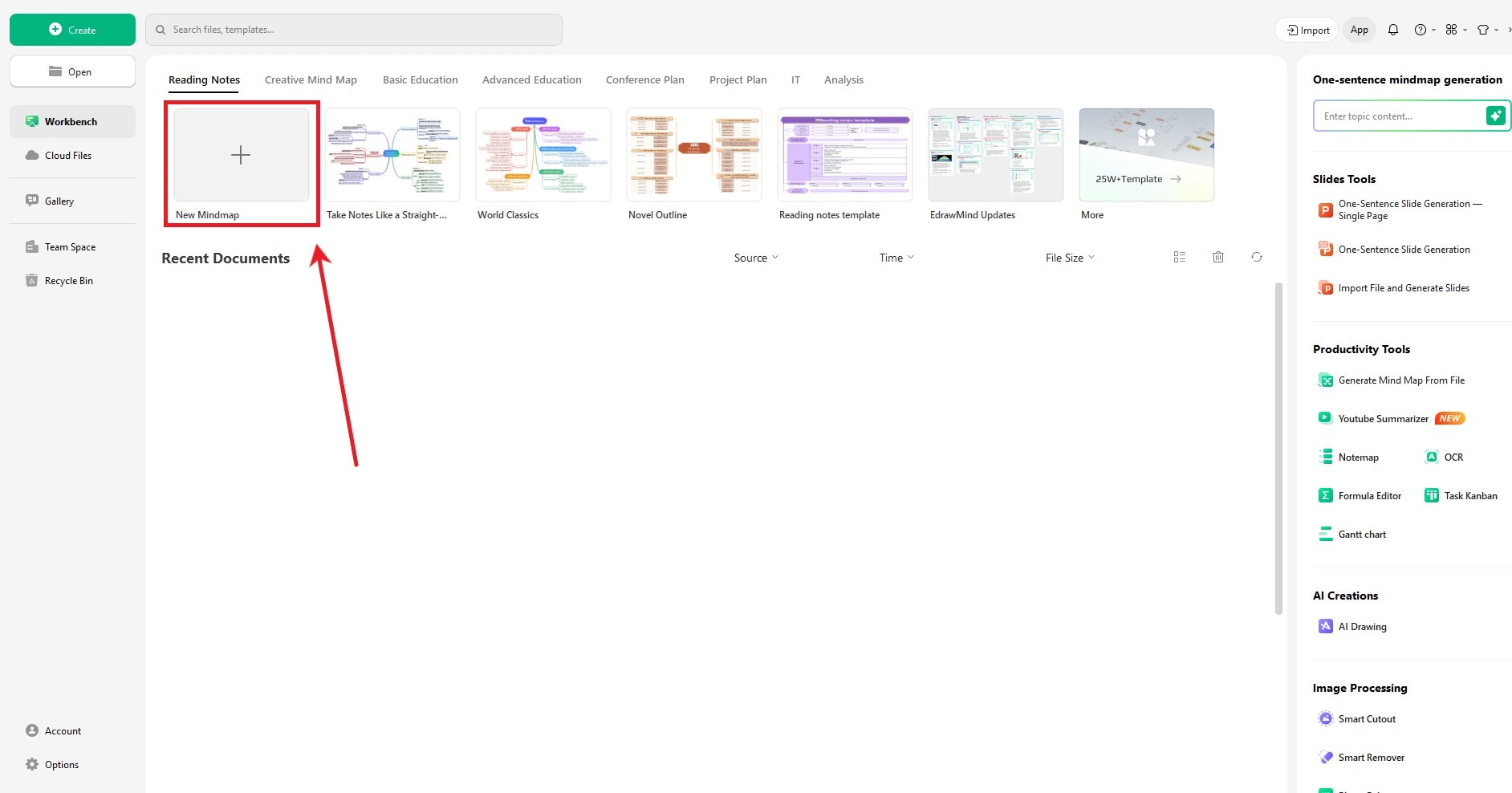
Step 2: Change the Timeline Layout
- Click on Main Idea in the center.
- Use the floating menu to find Layout.
- Choose the Timeline (down) layout from the list.
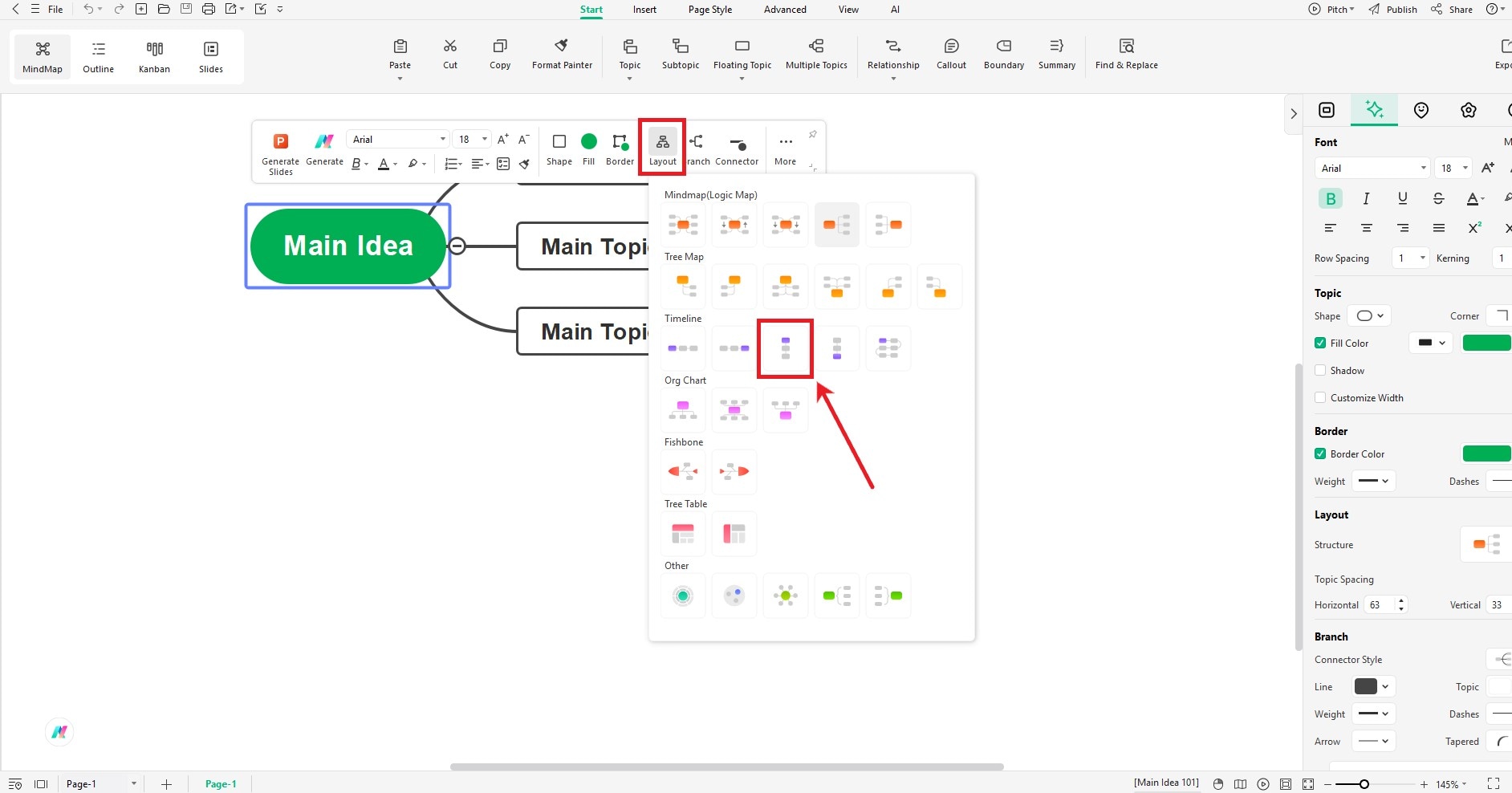
Step 3: Add Topics and Subtopics
- Click on Main Idea, then select More from the floating menu.
- From the drop-down list, choose Topic to add a new topic.
- To create additional entries, select a Main Topic and click Subtopic.
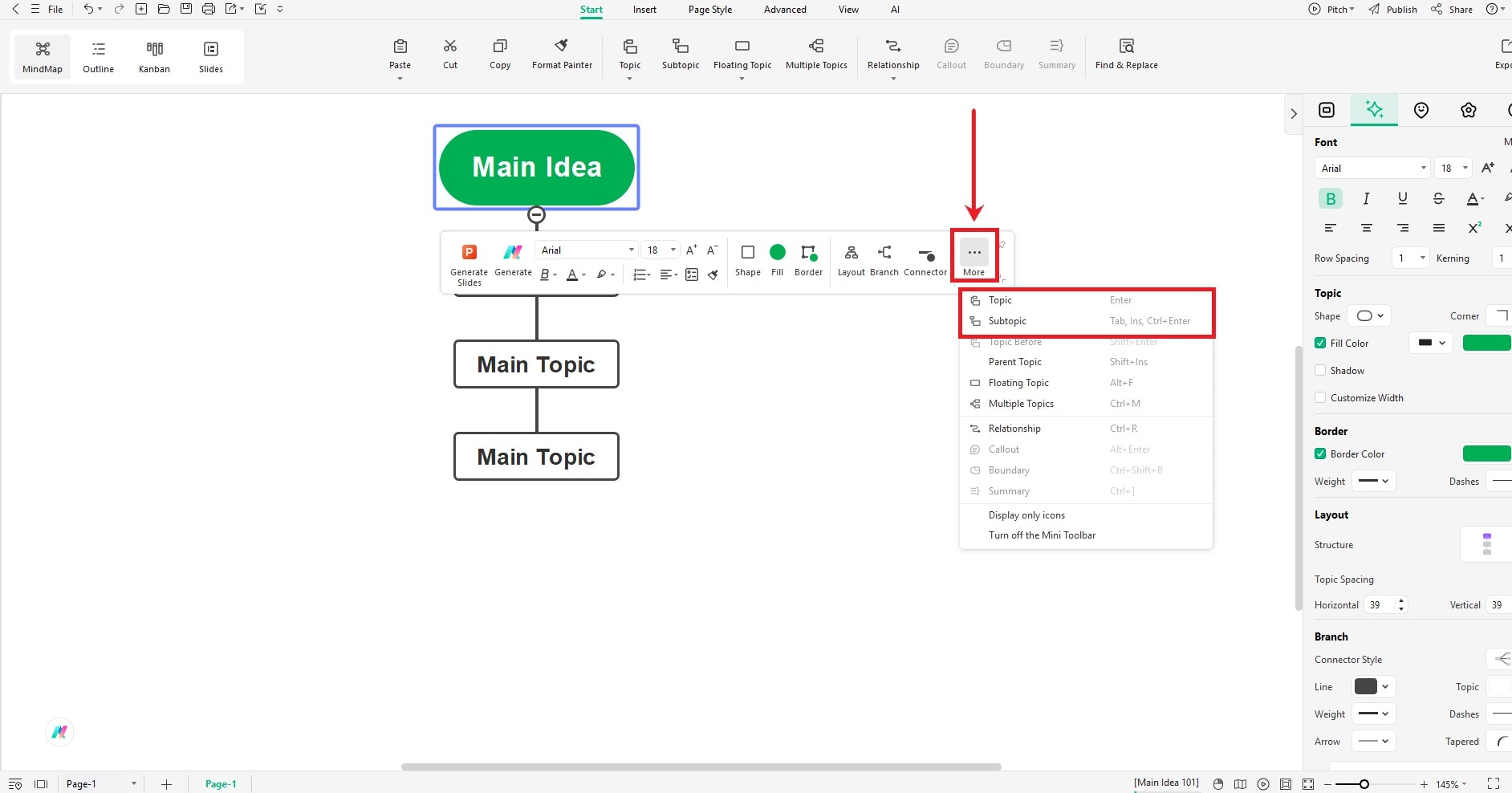
Step 4: Customize Your Timeline
- Click on any topic to type in your text.
- Use the floating menu or right panel to change font, color, and style.
- Highlight each historical period for clarity.
- Select one or multiple topics to customize them from the floating menu or the right panel.
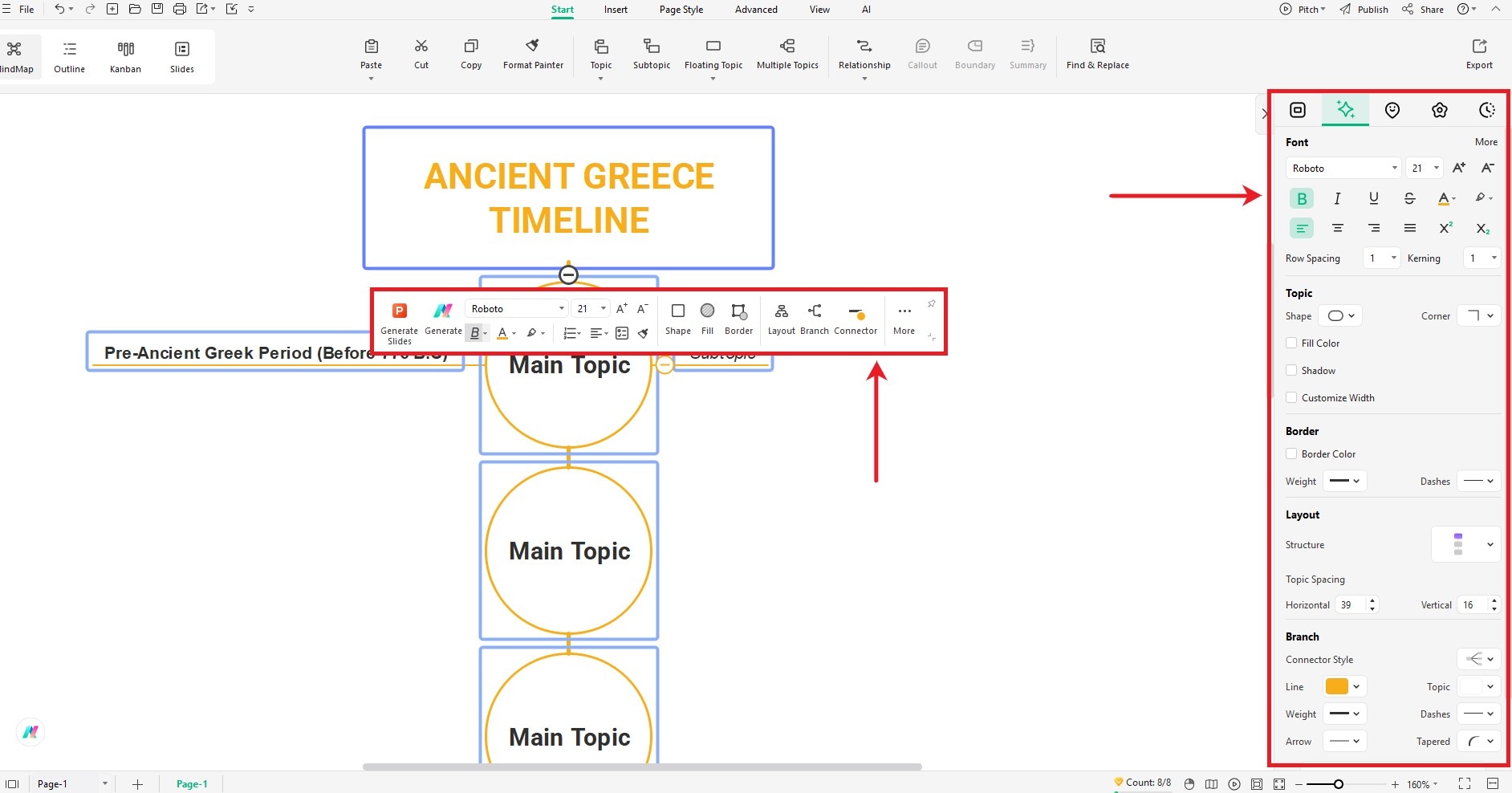
Step 5: Add Images and Symbols
- Copy and paste relevant images onto the canvas.
- Drag and drop them into each topic.
- Use the right toolbar to customize image settings.
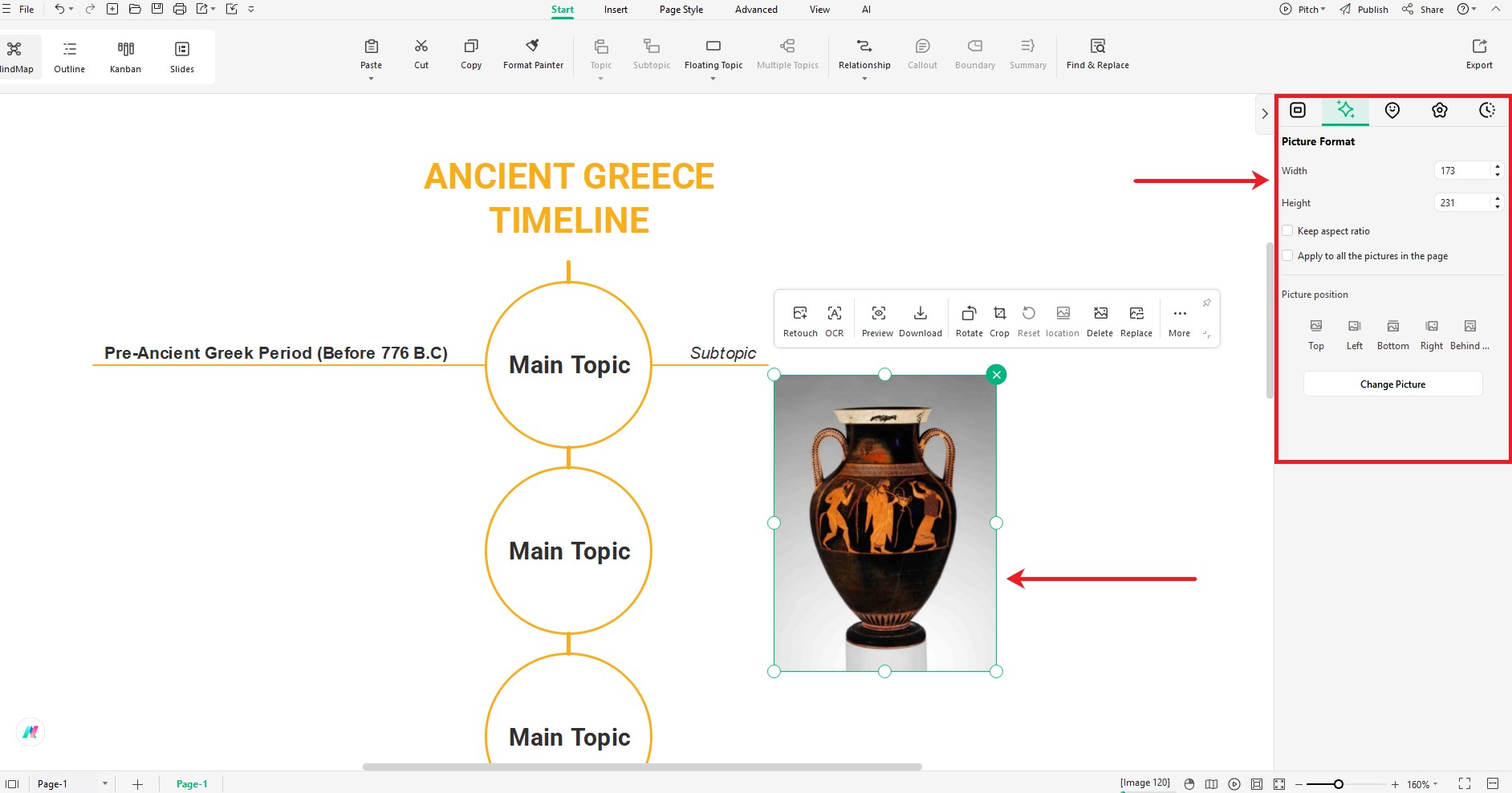
Step 6: Save or Share or Export
- When you're done, click File > Save to download it.
- Or use Share to create a link or email it
- You can also click Export to get more format options like JPG, PNG, PPT, PDF, and more.
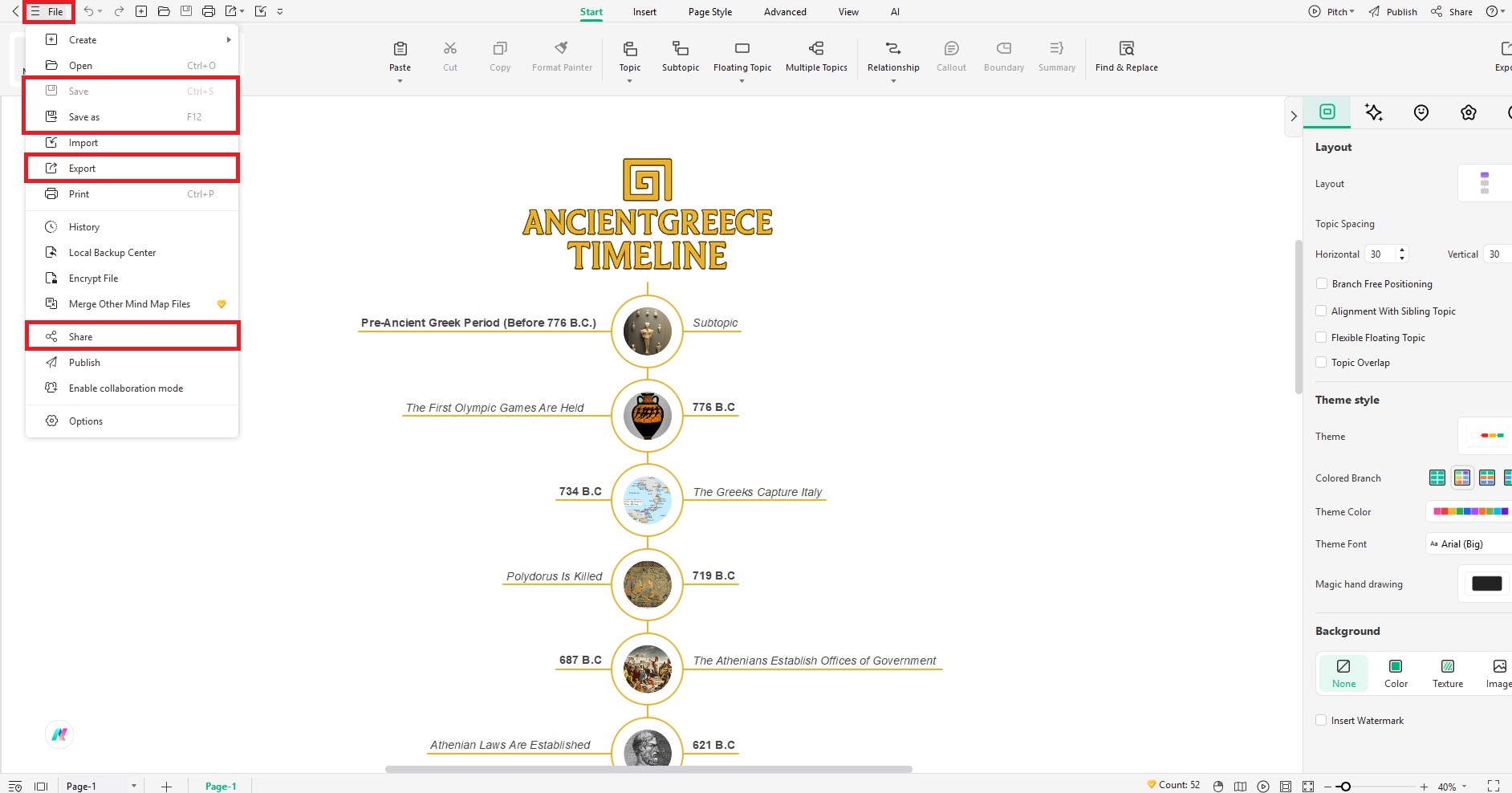
Closing Remarks
Ancient Greece grew from small villages into a world of powerful ideas. It gave us democracy, art, and philosophy. From city-states to empires, each era shaped the next. Brave warriors, wise thinkers, and bold leaders made history here.
Even under Roman rule, Greece's spirit lived on. Its stories, laws, and culture still shape the modern world. Want to bring history to life? Use EdrawMind to map the Ancient Greece timeline and explore major events with clarity and fun.



